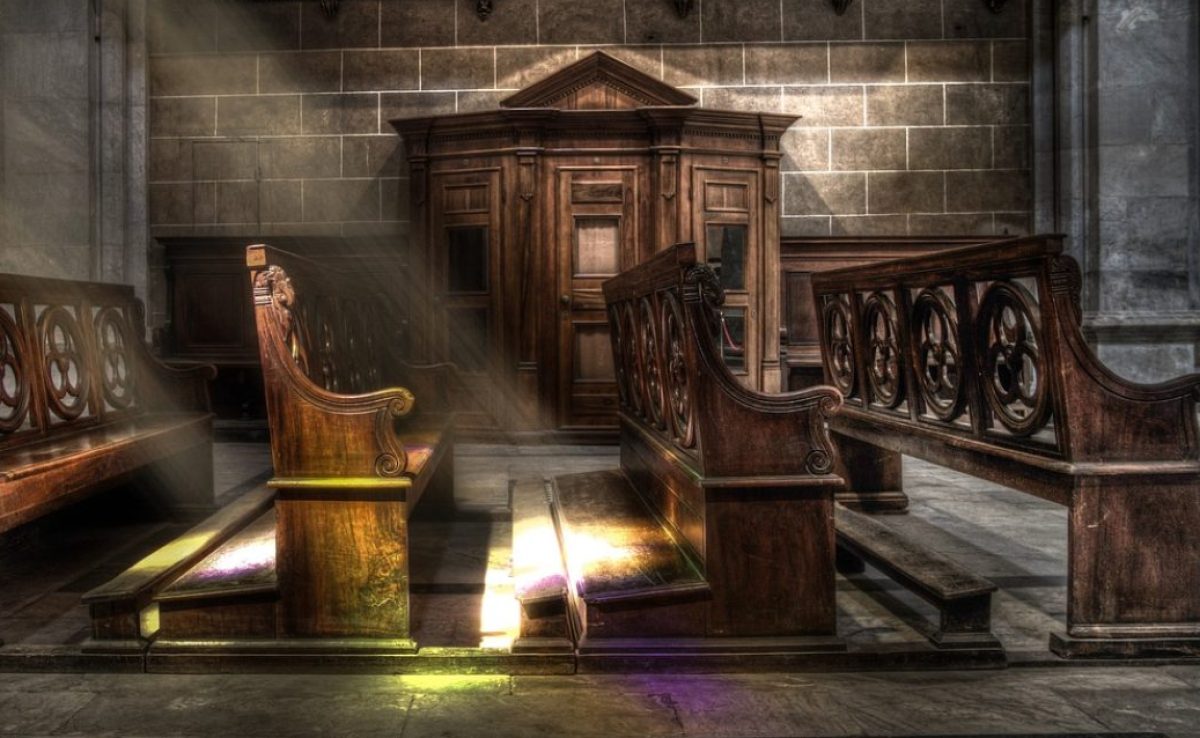In the previous article, I explained how the Bible describes love. If you have not read part one, then I urge you to start there so that the overall context can be understood for this article.
Perhaps the key thing we learned in part one is that God is love. We are not told that “God is judgment,” “God is mercy,” “God is wrath,” or anything of the sort. It is in God’s character to be merciful, to judge, and to pour out wrath at times, but such things do not literally define His character or essence.
However, we are told that love does; “God is love.”
This means that all God’s actions extend from His loving nature. Again, all God’s actions are done out of love. This simply must be kept in mind when considering the events described in the Bible, as well as how God interacts with His people today.
God either answering a prayer, or seemingly ignoring it, are both done out of love.
God raising a just ruler to lead His people was always done out of love.
God judging Israel throughout the OT was done out of love.
God redeeming the world through Jesus was done out of love.
This probably registers with most of us, but it goes a step farther. Believe it or not, God bringing wrath upon the wicked and unrepentant is also done out of love. Yes, even God’s wrath is connected to His love.
Allow me to explain.
______________
Examples of Wrath
The Bible is replete with examples of where God pours His wrath out upon wicked humanity.
This first notable time this was seen was in the destruction of the world through the Great Flood. Humanity had become so corrupt that God had no choice but to wipe the slate clean and start over with the few righteous people who remained:
“Then the Lord saw that the wickedness of mankind was great on the earth, and that every intent of the thoughts of their hearts was only evil continually. So the Lord was sorry that He had made mankind on the earth, and He was grieved in His heart. Then the Lord said, ‘I will wipe out mankind whom I have created from the face of the land; mankind, and animals as well, and crawling things, and the birds of the sky. For I am sorry that I have made them” (Gen. 6:5-7).
And wipe out the world—all but Noah and his family—God did.
A similar, but more localized, event transpired later with the obscenely corrupt cities of Sodom and Gomorrah. After several times going back and forth, God finally told Abraham that He would spare the city of Sodom if even ten righteous people could be found there (Gen. 18:32). Since the righteous could nowhere be found, God poured His wrath out upon the cities:
“Then the Lord rained brimstone and fire on Sodom and Gomorrah from the Lord out of heaven, and He overthrew those cities, and all the surrounding area, and all the inhabitants of the cities, and what grew on the ground” (Gen. 19:24-25).
Whenever stubborn groups or individuals threatened God’s overall plan to bring salvation to the world, God poured His wrath out on them. This can be seen in Korah’s rebellion, where a particularly dark and unruly sect attempted to overthrow Moses and Aaron’s ministry (and, by extension, God’s plans). God had no choice but to remove the rotten berries from the rest of the patch:
“And as he finished speaking all these words, the ground that was under them split open; and the earth opened its mouth and swallowed them, their households, and all the people who belonged to Korah with all their possessions. So they and all that belonged to them went down alive to Sheol; and the earth closed over them, and they perished from the midst of the assembly” (Num. 16:31-33).
God even poured His wrath out in the New Testament by striking Ananias and Saphirra—two individuals who attempted to cheat the church and then cover up their deed—killing them on the spot (see Acts 5).
While many other examples could be mentioned, we must always remember that God has created hell as the ultimate place of punishment for Satan, the demons, and even unrepentant humanity:
“Then He will also say to those on His left, ‘Depart from Me, you accursed people, into the eternal fire which has been prepared for the devil and his angels” (Mt. 25:41).
Hell serves that the ultimate example of God’s wrath being poured out onto the world. As I have discussed in this blog, hell is a place we should not even wish to contemplate, much less be sentenced to. It is certainly true that God’s wrath flows from his hatred for sin and from His righteousness.
However—and as I will now briefly explain—it also flows from God’s tremendous love.
_____________
Wrath from Love
While often missed, it is God’s love that propels Him to take up for His Saints. Just as Revelation provides us with the image of the martyrs crying out to God for justice (Rev. 6:9), we understand that God does and will take up for His people. In fact, it is for this very reason we are told to leave vengeance to the Lord:
“Beloved, do not avenge yourselves, but rather give place to wrath; for it is written, ‘Vengeance is Mine, I will repay,’ says the Lord” (Rom. 12:19).
Paul even goes on to further explain how this will work. We are to love our enemies and, in doing so, God will avenge those who love Him:
“But if your enemy is hungry, feed him; if he is thirsty, give him a drink; for in so doing you will heap burning coals on his head” (12:20).
God’s ultimate answer to the persecution of His people is judgment and destruction upon their enemies. God is slow to anger, however, and desires that all truly have a chance to be saved (2 Pet. 3:9). Unfortunately, we know that many will never repent but will continue to do evil. While the wicked will often reap what they sow in this life, we know for certain that they will in the next.
God’s love also means that He will not suffer His good Creation to forever be marred by sin:
“For we know that the whole creation has been groaning together in the pains of childbirth until now” (Rom. 8:22).
Moreover, this is precisely why God is going to create a new heaven and earth!
Even hell—that is, everlasting punishment and estrangement from God—is a necessary realm, in light of God’s love. Strange as it may be to consider, hell will exist in part as a reminder that God will not tolerate sin and wickedness.
Jesus often—at least 11 times—made reference to a flaming garbage dump that once lay outside of Jerusalem—a place he called “Gehenna”—as an example to all of what will come of the unrighteous.
For the eternity, the real “hell” that he was alluding to will serve as a perpetual reminder that sin will not be tolerated.
Hell will not only serve as a testament to the destructive nature of sin and the incredible righteousness of God, but it will also serve as a testament to God’s love: His defining characteristic.
God loves the saints, the angels, and his soon-to-be restored Creation far too much to allow sin to go unpunished.
_______________
Conclusion
Contrary to the logic of the world—which is foolishness to God—God’s love necessitates that His wrath exists. God punishes the wicked and destroys sin because of His great love for His children: those who follow Him.
Remember, once more, the fundamental reality that God is love. There is no way to divorce any of God’s actions from His very nature. God’s righteousness and hatred for sin is demonstrated in His wrath. However, so is His love. A God who does not punish those who persecute His people is not a loving God at all.
Think about it.
Do you love your children if you do not come to their defense? Do you allow evil within your home at the expense of your loved ones? God doesn’t. Evil is often—though not always—permitted for a time, but “Vengeance is Mine, and retribution, In due time their foot will slip” (Dt. 32:35a).
With all this in mind, I have often heard skeptics make the following statement: “I can’t believe in a god who would send people to hell.” When you understand what Scripture reveals about God’s nature, as well as the nature of evil, then you might just take the opposite view. When I hear people say they “can’t believe in a god who would send people to hell,” I simply reply:
“I can’t believe in a God who doesn’t.”
Praise be to God that we serve a Creator who loves us—and prioritizes us—enough to sacrifice His only begotten Son for our salvation. Likewise, praise be to God that our Creator loves us enough to punish our persecutors.
Finally, praise be to God that Love could never allow sin to remain a permanent fixture of reality.
–


One thought on “Love and Wrath (Part Two)”